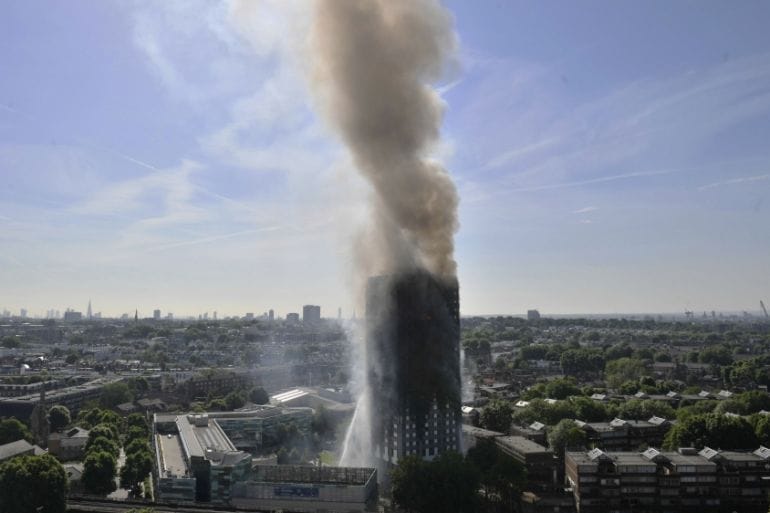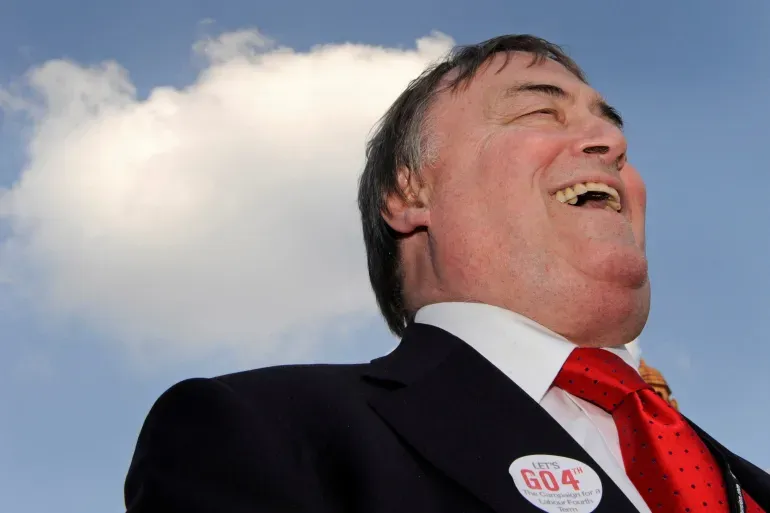UK inquiry finds ‘dishonesty and greed’ behind Grenfell Tower fire deaths
The six-year inquiry condemns ‘decades of failure’ by governments, incompetence, dishonesty and greed.

A report released on Wednesday has concluded that incompetence, dishonesty, and greed were the primary factors behind the 72 "avoidable" deaths in the Grenfell Tower fire in London.
Following a six-year investigation, the final report identified several contributors to the tragedy, including decades of governmental failure in the UK, safety indifference from authorities, and the dishonesty and incompetence of manufacturers and installers of building materials. Additionally, the lack of a comprehensive strategy by firefighters played a significant role in the high death toll.
Martin Moore-Bick, the chairman of the inquiry, stated at a news conference that the residents of the 24-storey building were "badly failed" over many years. “The simple truth is that the deaths that occurred were all avoidable,” he said.
The extensive inquiry, which included over 300 public hearings and reviewed around 1,600 witness statements, took longer than expected due to its broad scope and the discovery of many more issues than initially anticipated.
The report revealed that various factors contributed to the rapid spread of the fire and the failure to rescue residents. Moore-Bick attributed the failures largely to incompetence, with instances of “dishonesty and greed” also playing a role.
The first phase of the inquiry had already identified that the fire was exacerbated by the cladding used on the building, which was made of highly flammable aluminium composite material (ACM).
The report criticized the use of this cladding, which was chosen for its cost-effectiveness despite the known safety risks, and highlighted the negligence of the involved parties, including architects, engineers, and contractors, who failed to prioritize safety. The government and authorities were also criticized for not addressing the dangers of such cladding over the years.

The tenant management organization of the local authority was accused of manipulating the process of appointing the architect responsible for the cladding installation.
The report also directed significant criticism at the cladding manufacturers for engaging in “systematic dishonesty,” including manipulating safety tests and misrepresenting results to claim the material was safe.
Further, the London Fire Brigade was found lacking in effective management and leadership. The report noted that firefighters were inadequately trained for high-rise fires and equipped with outdated communication devices.
Recommendations from the report include stricter fire safety regulations, the creation of a national fire and rescue college, and the establishment of a single independent regulator for the construction industry.
London Mayor Sadiq Khan described the report as “gut-wrenching” and called for accountability for those responsible, including banning implicated companies from receiving public contracts while investigations continue.
Prime Minister Keir Starmer issued an apology to the victims' families, acknowledging the state’s failure to protect them. “It should never have happened. The country failed to discharge its most fundamental duty, to protect you and your loved ones,” he said.
The report’s findings could lead to criminal charges, with 19 organizations and 58 individuals currently under investigation. Possible charges include corporate manslaughter, gross negligence manslaughter, fraud, health and safety violations, and misconduct in public office. However, police have indicated that charges may not be filed until 2026.
Survivors and bereaved families expressed concern that the report’s broad allocation of blame might hinder proper accountability. “We were denied justice for seven years and now told there will be several more years,” said the Grenfell Next of Kin group.
The inquiry's delay and lack of consultation with the affected families have also been criticized. Hisam Choucair, a member of the group who lost six family members, lamented that the inquiry was initiated without their input and while survivors were still in shock.
Moore-Bick highlighted that warning signs about the dangers of ACM panels had been evident as early as 1991, but authorities failed to update statutory guidance on construction materials, setting the stage for the disaster.
In response to the fire, the UK government has banned metal composite cladding for new buildings and ordered the removal of similar cladding from numerous tower blocks. However, due to high costs, some buildings still have not had the unsafe cladding removed.
The recent fire in Dagenham, East London, underscored the ongoing risks, with over 80 people evacuated from a building with partially removed non-compliant cladding.
As of July, UK government data indicated that 4,630 buildings over 11 meters high still have unsafe cladding, with work on half of them yet to commence.
Moore-Bick noted that all the victims were "overcome by toxic gases produced by the fire," emphasizing the human tragedy of the incident, which claimed lives from 23 countries and included a diverse range of individuals. The fire has prompted reflection on social inequality in Britain, particularly given Grenfell’s location in one of London’s wealthiest areas while being a public housing building largely occupied by working-class residents with immigrant backgrounds.





